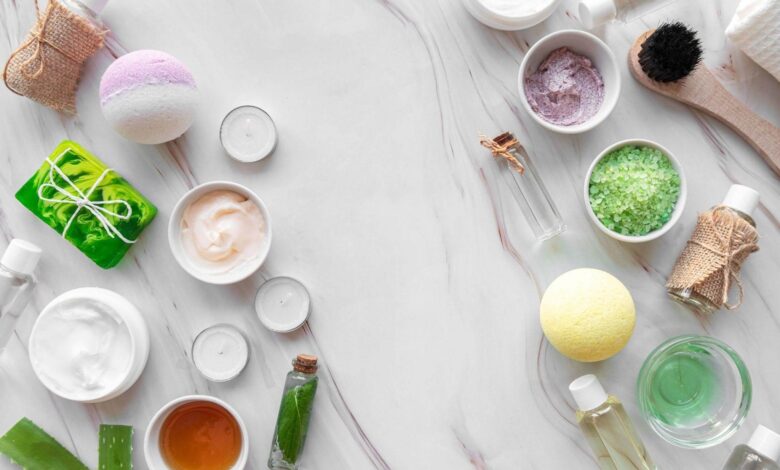Meaningful beauty ingredients for skincare routine

In the skincare world, ingredients are the lifeblood of any effective routine. Whether you have dry, oily, combination, sensitive, or normal skin, choosing the right ingredients is essential to achieving healthy, radiant skin. This article will guide you through the meaningful beauty ingredients and help you understand how to select the best ones for your skin type.
The importance of ingredients in skincare
An effective skincare routine is based on several meaningful beauty ingredients that can address various skin needs and concerns. That is why choosing these is essential. They act as tools that address many concerns, from hydration to wrinkle reduction and protection against environmental damage. Some of them are:
● Hyaluronic acid: It is a natural humectant that retains moisture in the skin, making it look softer and more hydrated.
● Retinoids (such as retinol): Stimulate cell renewal, help reduce wrinkles and improve skin texture.
● Vitamin C: An antioxidant that fights free radicals, reduces hyperpigmentation and stimulates collagen production.
● Salicylic acid: A beta hydroxy acid (BHA) that helps exfoliate and clean pores, effectively treating acne and oily skin.
● Glycolic Acid: An alpha hydroxy acid (AHA) that exfoliates the top layer of the skin, improving skin texture and tone.
● Niacinamide (vitamin B3): Helps reduce redness, minimizes pores, regulates sebum production, and improves the skin barrier.
● Peptides: Stimulate collagen production and help reduce wrinkles and fine lines.
● Rosehip oil: Rich in essential fatty acids, it helps regenerate the skin and reduce scars and blemishes.
● Jojoba oil: A natural moisturizer that balances sebum production and prevents clogged pores.
● Aloe vera: It has anti-inflammatory and soothing properties, ideal for sensitive or irritated skin.
● Tea tree oil: With antibacterial properties, it is for acne and other skin conditions.
● Chamomile Extract: Soothes sensitive skin and reduces inflammation.
See also: The Importance of Finding the Right Eye Doctor San Diego
How do I know which ingredients are for my skin?
Determining which ingredients are appropriate for your skin involves a combination of factors, including your skin type, specific concerns, sensitivities, and personal preferences:
Know your skin
Do you have dry, oily, combination, normal, or sensitive skin? Understanding your skin type is the first step in selecting suitable ingredients.
Normal skin:
● Hyaluronic acid: To maintain hydration.
● Vitamin C: As an antioxidant and to provide luminosity.
● Mild retinoids: To prevent signs of aging.
Dry Skin:
● Hyaluronic acid: For deep hydration.
● Natural oils (coconut oil, argan oil, etc.): To retain moisture.
● Ceramides: To strengthen the skin barrier.
Oily skin:
● Salicylic acid: To clean pores and prevent acne.
● Niacinamide: To reduce excess oil and minimize pores.
● Glycolic acid: To exfoliate and improve skin texture.
Mixed skin:
● Products with multiple ingredients adapted to dry and oily areas of the skin.
Identify your concerns
Do you have wrinkles, acne, hyperpigmentation, enlarged pores, or other specific problems? Identifying your concerns will help you choose ingredients that address those concerns.
Sensitive skin:
● Aloe vera: To calm irritation and redness.
● Jojoba oil: To hydrate without clogging pores.
● Peptides: To reduce sensitivity and strengthen the skin barrier.
Acne-prone skin:
● Salicylic acid: To treat and prevent acne breakouts.
● Benzoyl peroxide: To combat the bacteria responsible for acne.
● Witch hazel extract: To reduce inflammation.
Mature skin:
● Retinoids (retinol): To reduce wrinkles and fine lines.
● Peptides: To stimulate collagen production.
● Antioxidants such as vitamins C and E: To protect the skin from premature aging.
Perform a patch test
Before applying a new product to your face, perform a patch test. Apply the product to a small area of your skin, such as your forearm, and watch for any adverse reactions, such as redness, itching, or irritation. This will help you determine if you are sensitive to a particular ingredient.
Read product labels
When purchasing skincare products, read labels and look for ingredients compatible with your skin type and concerns. Avoid products that contain ingredients you know you are allergic to or irritate your skin.
Consult a dermatologist
If you have questions about which ingredients are best for your skin, consider scheduling a consultation with a dermatologist. Dermatologists can provide personalized recommendations and suggest specific products.
Consider your entire routine
When selecting ingredients for your skin, make sure they work well together in your skincare routine. Not all ingredients are compatible with each other, so it is important to ensure that there are no negative interactions.
Be consistent
Once you have identified the ingredients that work for your skin, be consistent and use products that contain them. Results can take time, so don’t be discouraged if you don’t see immediate improvements.
Remember that everyone’s skin is unique, so what works for one person may not be best for another. Experiment with products and follow a trial-and-error approach to determine which meaningful beauty ingredients work for you.




